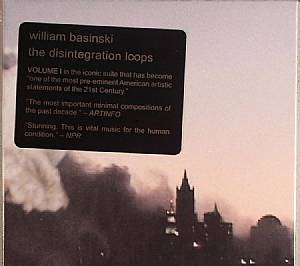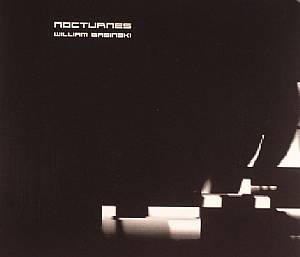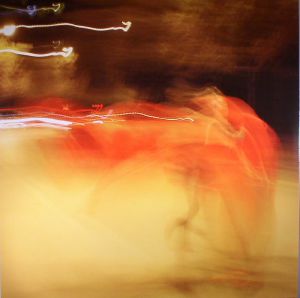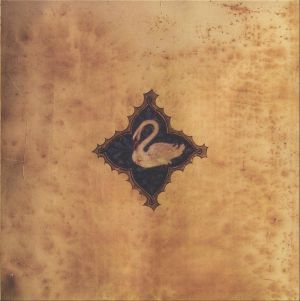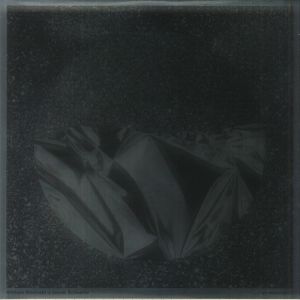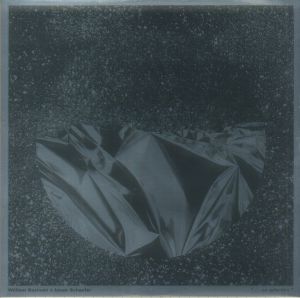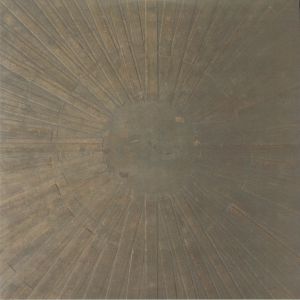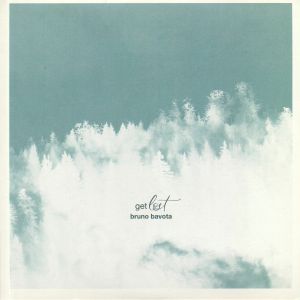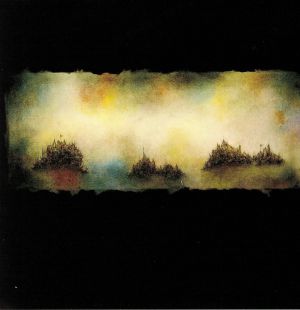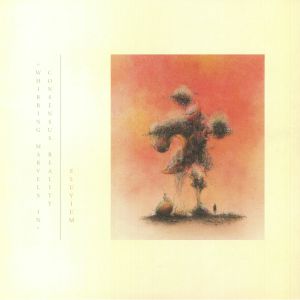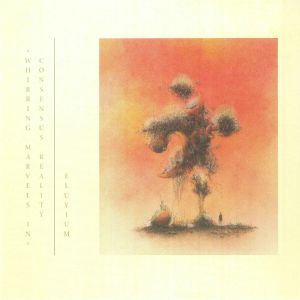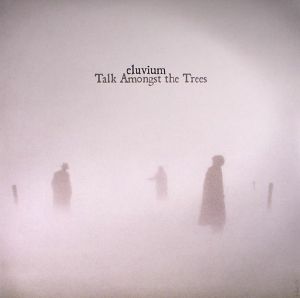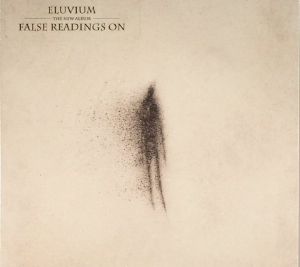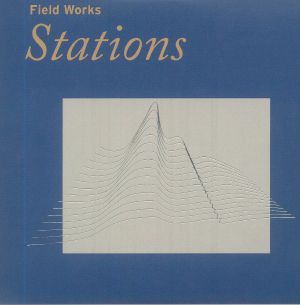Receive new release alerts for Temporary Residence Limited US
Temporary Residence Limited US Vinyl & CDs
Browse the latest Vinyl & CD releases on Temporary Residence Limited USSimilar labels:
The Deluge (limited 180 gram white vinyl LP + MP3 download code)
Cat: TRR 258LP. Rel: 28 Jul 15
Ambient/Drone
out of stock ₺881,78
Review: The latest full-length excursion from William Basinski has its roots in a 2017 Berlin exhibition that the long-serving experimental composer was invited to contribute to. Basinski created music for two installations, making extensive use of recordings of two distant black holes captured using the interferometers of LIGO (Laser Interferometer Gravitational-Wave Observatory). Of the two tracks on show, it's the epic title track that hits home hardest. It's a 40 minute ambient epic of intergalactic proportions, with Basinski offering up slowly-shifting, ice cold chords, crackling aural textures and occasional bursts of distant activity. The track that follows is a little warmer and undeniably drowsy, with Basinski utilizing manipulated neo-classical movements to create an intoxicating ambient mood.
… Read moreout of stock ₺1.322,67
Cat: TRR 223CD. Rel: 30 Aug 14
Experimental/Electronic
out of stock ₺573,21
Cat: TRR 224CD. Rel: 30 Aug 14
Experimental/Electronic
out of stock ₺540,39
Cat: TRR 225CD. Rel: 30 Aug 14
Experimental/Electronic
out of stock ₺408,07
Cat: TRR 226CD. Rel: 30 Aug 14
Experimental/Electronic
out of stock ₺496,46
The Disintegration Loops (DVD)
out of stock ₺2.822,64
out of stock ₺837,85
Melancholia (remastered) (limited gatefold LP + MP3 download code)
Cat: TRR 236LP. Rel: 01 May 14
Ambient/Drone
out of stock ₺1.466,63
Lamentations (limited gatefold coloured vinyl 2xLP + MP3 download code)
Cat: TRR 343LPC1. Rel: 22 Jan 21
Ambient/Drone
out of stock ₺1.168,65
out of stock ₺1.047,44
out of stock ₺518,16
92982 (remastered) (limited 2xLP in die-cut sleeve + MP3 download code)
Cat: TRR 268LP. Rel: 17 Aug 16
Ambient/Drone
Review: Originally Recorded live at Music Laboratories, New York, September 29, 1982 and eventually released 27 years later, William Basinski's 92982 receives a vinyl re-issue courtesy of the Temporary Residence label. Spread across two slabs of vinyl, the four separate parts to 92902 see Basinski teasing out ethereal, mesmerising loops from a reel to reel in all their decayed and degraded glory. It's all drenched in delay and reverb that works in the same tradition of his seminal LP, The Disintegration Loops . The truly haunting dark ambience of "92982.2" in particular is essential listening and a moment you won't forget, complete with eerie field recordings of NYC.
… Read moreout of stock ₺1.240,63
Review: Although William Basinski's work is often tagged as 'neo-classical', the veteran producer is very much an electronic musician. His craft does involve plenty of deep instrumentation and symphonious arrangements, but he's been experimenting with tape loops and reel-to-reels for over three decades. A Shadow In Time is his new EP for his own 2062 imprint, run alongside James Elaine, and it's every bit as glorious as the rest of 2062's glorious catalogue. "For David Robert Jones" is the opening slice of glorious sonority, a wondrous loops of aqueous sounds with free-roaming jazz instruments balancing in mid-air, and a mysterious charm to its hazy smoke of sounds. The title track "A Shadow in Time" is a sparser, less imperceptible slice of ambient textures that slowly builds into a vast, fiery soundscape of aural delight. A beautiful sonic massage.
… Read moreout of stock ₺959,58
Played by: Juno Recommends CD Albums
out of stock ₺518,16
Review: The latest full-length excursion from William Basinski has its roots in a 2017 Berlin exhibition that the long-serving experimental composer was invited to contribute to. Basinski created music for two installations, making extensive use of recordings of two distant black holes captured using the interferometers of LIGO (Laser Interferometer Gravitational-Wave Observatory). Of the two tracks on show, it's the epic title track that hits home hardest. It's a 40 minute ambient epic of intergalactic proportions, with Basinski offering up slowly-shifting, ice cold chords, crackling aural textures and occasional bursts of distant activity. The track that follows is a little warmer and undeniably drowsy, with Basinski utilizing manipulated neo-classical movements to create an intoxicating ambient mood.
… Read moreout of stock ₺518,16
Review: September 23rd is the first release in William Basinski's new Arcadia Archive series. Recorded in September 1982 in his first loft in the DUMBO neighborhood in Brooklyn, New York, September 23rd is a recently unearthed early entry in what has become a hugely inspirational and influential catalogue. Built from a piano piece that Basinski composed in high school in the mid-1970s, September 23rd quickly evolved into a vastly different work, upon its revisitation. Using the John Giorno and William Burroughs cut-up technique, Basinski fabricated an elaborate Frippertronics and feedback loop tape delay system, resulting in the quiet but dramatic set of sounds and resounds you hear here.
… Read more in stock ₺650,48
September 23rd (limited gatefold dark blue vinyl LP (indie exclusive))
Cat: TRR 435LPC1. Rel: 10 Oct 24
Ambient/Drone
Review: Originally recorded in September 1982, September 23rd would likely not recognise the DUMBO neighbourhood of Brooklyn in which it was conceived. Post-industrialisation, the area became known as a hotbed for artists due to the inexpensive loft spaces up for grabs, but today has been gentrified thanks to its position - Down Under Manhattan Bridge Overpass. One thing that hasn't changed in that time is just how spectacular William Basinski's pieces are. Comprising two parts, original piano sections played by close friend and world famous drag artist John Epperson (AKA Lypsinka) were recorded onto a handheld cassette machine, before being fed through a Frippertronics loop and feedback loop tape delay system, with incredible results. Rich, strange sonic textures, beautiful but fleeting moments of melody and a depth that sounds like you can dive into it.
… Read morePlayed by: Juno Recommends Ambient/Drone
in stock ₺1.466,63
Review: September 23rd is the debut release of William Basinski's new Arcadia Archive series and it features a previously unreleased gem recorded in September 1982 in his first loft in Brooklyn's pre-gentrified DUMBO. This early work, derived from a high school piano composition, evolved significantly after Basinski recorded it using a portable cassette deck on a piano owned by his neighbour, John Epperson at 351 Jay Street. Initially unimpressive, the piece transformed through Basinski's use of the John Giorno/William Burroughs cut-up technique and Frippertronics loop system to yield remarkable results. This discovery adds a captivating layer to Basinski's nearly five-decade career.
… Read morePlayed by: Juno Recommends Ambient/Drone
in stock ₺889,19
Review: William Basinski and Janek Schaefer make for a long distance collaboration on this much anticipated new album. It has taken the best part of eight years from conception to final execution but that more than proves worth the wait. Time and duration are recurring themes in their work and during the pandemic yeas in particular those were very much skewed and warped for us all. ". . . on reflection" casts itself free from temporal restraints with delicate piano passages, flickering melodies and drawn out drones that really sink you in deep.
… Read moreout of stock ₺518,16
Review: William Basinski and Janek Schaefer make for a long distance collaboration on this much anticipated new album. It has taken the past eight years from conception to final execution but that more than proves worth the wait. Time and duration are recurring themes in their work and during the pandemic yeas in particular those were very much skewed and warped for us all. ". . . on reflection" casts itself free from temporal restraints with delicate piano passages, flickering melodies and drawn out drones that really sink you in deep.
… Read morePlayed by: Joachim Spieth, Juno Recommends Ambient/Drone
out of stock ₺793,39
On Reflection (limited silver vinyl LP + MP3 download code)
Cat: TRR 372LPC1. Rel: 20 Oct 22
Modern Classical
Review: The Disintegration Loops man William Basinski has linked up with acclaimed experimental composer Janek Schaefer for this new collaborative record on Temporary Residence Limited. What they cook up is a suite of very unassuming songs that are all dedicated to the late and great avant-garde composer Harold Budd. The record was eight years in the making and is as timeless as ambient gets with 42 minutes of gently undulating sonic terrain gently and quietly detailed with subtle skill and placid melodies. It is as beautiful as it is absorbing once you really give yourself over to the sounds.
… Read morePlayed by: Joachim Spieth, Juno Recommends Leftfield
out of stock ₺1.124,72
Review: Experienced experimentalists William Basinski and Lawrence English have long been friends, growing closer over the last half-decade thanks to a string of chance encounters in cities around the globe. Finally, they've joined forces on their first collaborative set, an album that was reputedly "simultaneously recorded in Brisbane and Los Angeles". It's a thing of beauty, with both of the long, poignant and slowly shifting ambient cuts being tinged by melancholy brought on by the loss of their mutual friend, experimental filmmaker Paul Clipson. Like "Selva Obscura", Clipson's work celebrated the act of getting lost in experiences that lie beyond everyday understanding.
… Read moreout of stock ₺981,28
Review: Experienced experimentalists William Basinski and Lawrence English have long been friends, growing closer over the last half-decade thanks to a string of chance encounters in cities around the globe. Finally, they've joined forces on their first collaborative set, an album that was reputedly "simultaneously recorded in Brisbane and Los Angeles". It's a thing of beauty, with both of the long, poignant and slowly shifting ambient cuts being tinged by melancholy brought on by the loss of their mutual friend, experimental filmmaker Paul Clipson. Like "Selva Obscura", Clipson's work celebrated the act of getting lost in experiences that lie beyond everyday understanding.
… Read moreout of stock ₺518,16
Selva Oscura (limited coloured vinyl LP + MP3 download code)
Cat: TRR 312LPC1. Rel: 12 Oct 18
Ambient/Drone
Review: Experienced experimentalists William Basinski and Lawrence English have long been friends, growing closer over the last half-decade thanks to a string of chance encounters in cities around the globe. Finally, they've joined forces on their first collaborative set, an album that was reputedly "simultaneously recorded in Brisbane and Los Angeles". It's a thing of beauty, with both of the long, poignant and slowly shifting ambient cuts being tinged by melancholy brought on by the loss of their mutual friend, experimental filmmaker Paul Clipson. Like "Selva Obscura", Clipson's work celebrated the act of getting lost in experiences that lie beyond everyday understanding.
… Read moreout of stock ₺981,28
Played by: Marco Gallerani, Juno Recommends Ambient/Drone
out of stock ₺805,03
Get Lost (limited coloured vinyl LP + MP3 download code)
Cat: TRR 327LPC1. Rel: 18 Oct 19
Ambient/Drone
out of stock ₺848,96
out of stock ₺816,15
For Apartments: Songs & Loops (gatefold 2xLP + MP3 download code)
Cat: TRR 371LP. Rel: 15 Oct 21
Experimental/Electronic
out of stock ₺1.036,33
Homb (Anniversary Edition) (limited red vinyl 2xLP + MP3 download code (indie exclusive))
Cat: TRR 024LPC1. Rel: 08 Dec 22
Post Rock/Experimental
in stock ₺1.411,06
in stock ₺925,71
Played by: Juno Recommends Ambient/Drone
out of stock ₺1.036,33
Pianoworks (limited coloured vinyl 3xLP + MP3 download code)
Cat: TRR 299LPC1. Rel: 07 Jun 19
Ambient/Drone
out of stock ₺1.543,37
out of stock ₺419,19
out of stock ₺528,75
Review: RECOMMENDED
You'll find it hard not to imagine some cavernous, ancient church while listening to the sounds on this four track outing. There's real depth to the refrains at play here, which is one of the reasons Matthew Cooper, the artist behind the Eluvium moniker, never fails to make an impression. Music that is at once incredibly patient but also uncompromising. Subtly overwhelming, for want of a better phrase
A follow up to his Virga I outing, this second chapter in the tale is just as atmospheric, spatial, and beautiful. These are the notes that you'd want to hear when discovering new worlds, and also the tones that make you feel as though ancient civilisations are finally being understood. Or at least appreciated. Timeless ambient stuff with a heavy drone slant, it's accomplished in every way.
… Read moreYou'll find it hard not to imagine some cavernous, ancient church while listening to the sounds on this four track outing. There's real depth to the refrains at play here, which is one of the reasons Matthew Cooper, the artist behind the Eluvium moniker, never fails to make an impression. Music that is at once incredibly patient but also uncompromising. Subtly overwhelming, for want of a better phrase
A follow up to his Virga I outing, this second chapter in the tale is just as atmospheric, spatial, and beautiful. These are the notes that you'd want to hear when discovering new worlds, and also the tones that make you feel as though ancient civilisations are finally being understood. Or at least appreciated. Timeless ambient stuff with a heavy drone slant, it's accomplished in every way.
Played by: Juno Recommends Ambient/Drone
out of stock ₺981,28
(Whirring Marvels In) Consensus Reality (limited green vinyl LP + MP3 download code (indie exclusive))
Cat: TRR 406LPC2. Rel: 02 Jun 23
Modern Classical
Review: If postmodernity is what really rivets the minds and hearts of music listeners today, then longtime music-maker Eluvium (Matthew Robert Cooper) certainly has his finger firmly on the pulse. His latest album is a musical weigh-up of the concept of ontological relativism, a way of thinking that has seen an uptick in recent years thanks to the oncoming tide of new intelligence-mimicking (or, shall we say, cloning?) technologies such as AI and psyche-predictive algorithms. Through dour string movements, rattling soundscapes and neoclassical tropes, a sense of inevitability is put forth by the likes of 'Swift Automations' and 'Scatterbrains'. Whether the overarching conclusion of '(Whirring Marvels In) Consensus Reality' means we'll be overtaken by robots is really up to you.
… Read morePlayed by: Juno Recommends Leftfield
out of stock ₺1.190,35
Cat: TRR 406CD. Rel: 11 May 23
Ambient/Drone
Review: Eluvium (Matthew Robert Cooper) has a penchant for indulging big existential concepts with his music. His latest, (Whirring Marvels In) Consensus Reality, is no exception. This latest LP is a musical weigh-up of the concept of ontological relativism, a philosophy which questions the assumption that there is a difference between man and machine. Trembling strings and complex seguings between sections make up this impressive modern classical symphony for our times.
… Read moreout of stock ₺518,16
Talk Amongst The Trees (remastered) (limited 2xLP + MP3 download code)
Cat: TRR 078LP. Rel: 03 Feb 17
Ambient/Drone
out of stock ₺981,28
out of stock ₺1.290,38
Played by: Juno Recommends Ambient/Drone
out of stock ₺1.036,33
out of stock ₺507,05
Lambent Material (limited dark red vinyl LP + MP3 download code)
Cat: TRR 057LPC1. Rel: 26 Oct 23
Ambient/Drone
out of stock ₺1.257,04
Lambent Material (audiophile vinyl LP + MP3 download code)
Cat: TRR 057LP. Rel: 26 Oct 23
Ambient/Drone
in stock ₺1.091,90
Cedars (gatefold LP + book + insert + MP3 download code in spot-varnished sleeve)
Cat: TRR 351LP. Rel: 05 Mar 21
Experimental/Electronic
out of stock ₺981,28
out of stock ₺440,89
Cat: TRR 352CD. Rel: 27 Aug 21
Ambient/Drone
out of stock ₺518,16
Stations (gatefold LP + MP3 download code in spot-varnished sleeve)
Cat: TRR 367LP. Rel: 01 Apr 22
Experimental/Electronic
out of stock ₺959,58
out of stock ₺396,43
out of stock ₺925,71

 TRY
TRY







